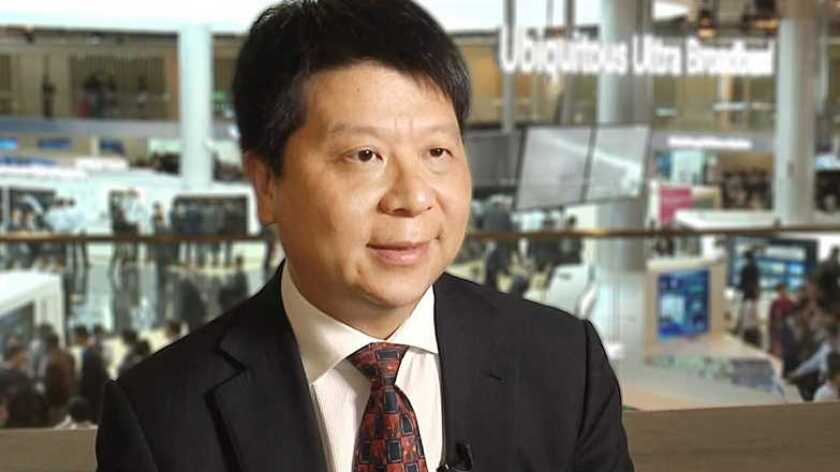In an opinion article published in the Financial Times, Guo writes that the National Security Agency (NSA), the US electronic spying agency, is less able to spy via networks using Huawei equipment.
“Clearly, the more Huawei gear is installed in the world’s telecommunications networks, the harder it becomes for the NSA to ‘collect it all’,” writes Guo. “Huawei, in other words, hampers US efforts to spy on whomever it wants.”
Earlier this week at a meeting in Barcelona, where Mobile World Congress (MWC) is taking place, Guo denied Huawei provides back doors to the Chinese government.
“We have never allowed and will not allow back doors in our equipment,” he told Capacity. “We will not allow anyone to do that.”
Guo is the current rotating chairman of Huawei, one of three who are in executive charge of the company for six months at a time.
In his FT article, Guo cites the NSA documents leaked by Edward Snowden in 2013. That revealed a programme called Prism that allegedly gave the NSA back doors into servers of a number of US communications companies.
Guo writes in his FT article: “The Snowden leaks shone a light on how the NSA’s leaders were seeking to ‘collect it all’ – every electronic communication send, or phone call made, by everyone in the world, every day.”
He adds: “These documents also showed that the NSA maintains ‘corporate partnerships’ with particular US technology and telecom companies that allow the agency to ‘gain access to high-capacity international fibre-optic cables, switches and/or routers throughout the world’.”
The files leaked by Snowden included an NSA PowerPoint screen claiming “dates when Prism collection began for each provider”. It lists Microsoft, with the back door opening in 2007 and moves through Yahoo (now part of Verizon), Google, Facebook, YouTube, Skype (now part of Microsoft), AOL (also now part of Verizon), and Apple, which it says was “added in 2012”.
A 2013 report in The Guardian – which received the Snowden leaks – quotes Google as saying: “We disclose user data to government in accordance with the law, and we review all such requests carefully.”
That, curiously, is just the accusation the US has made against Huawei – that the Chinese government can order it to disclose information about the traffic its networks carry.
Guo says in his FT opinion article: “If the US can keep Huawei out of the world’s 5G networks by portraying us as a security threat, it can retain its ability to spy on whomever it wants. America also directly benefits if it can quash a company that curtails its digital dominance.”
He notes: “A range of US laws, including most recently the Cloud Act, empowers the US government to compel telecom companies to assist America’s programme of global surveillance, as long as the order is framed as an investigation involving counter-intelligence or counter-terrorism.”
At MWC in Barcelona this week, few senior industry executives whom Capacity met expressed concern about Huawei – though most preferred to duck questions about the topic.
However, one senior executive with a European operator noted to Capacity that a leading department in the executive’s national government had been subject to a serious cyber attack a few years ago.
“We did not know if it was the Chinese or the Americans,” said the executive, speaking on condition of anonymity. Because of the department targeted, the attack was likely to have been looking for commercial information, the executive speculated.






